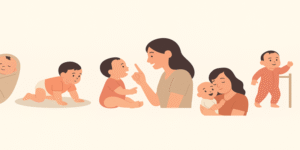The final moments of a job interview are as significant as its beginning. While the opening sets the tone, the closing leaves a lasting impression on the interviewer, often influencing their final decision (Dipboye & Macan, 2012). A well-executed close demonstrates confidence, professionalism, and self-awareness, leaving the interviewer with a clear sense of your motivation and suitability. This article discusses the best practices for closing a job interview, including how to ask the interviewer insightful questions, how to reflect after the interview, and how to handle subsequent interview stages such as assessment centres.
The Importance of Closing an Interview Effectively
Many candidates underestimate the importance of how they end an interview. According to Shouksmith (2014), the closing phase offers candidates an opportunity to reinforce their enthusiasm, summarise their key strengths, and express genuine interest in the organisation. This stage is not merely a formality—it is a crucial persuasive moment where the candidate can consolidate rapport and clarify final impressions.
Barrick, Swider and Stewart (2010) note that the interviewer’s final evaluation is often shaped by the recency effect, meaning that information shared toward the end of the conversation is remembered most vividly. Therefore, ending with clarity, enthusiasm, and purpose can positively influence hiring outcomes.
An effective close usually includes three actions:
- Summarising your value – reiterate key qualifications and how they align with the job.
- Asking thoughtful questions – demonstrate curiosity and engagement.
- Clarifying next steps – show professionalism by understanding the process ahead.
Asking the Interviewer Questions
A job interview is a two-way process—it is as much about candidates evaluating the organisation as the other way around. Asking thoughtful and informed questions demonstrates engagement, preparation, and critical thinking (Lees, 2012). According to Campion, Pursell and Brown (1988), the ability to engage in structured, meaningful questioning signals competence and confidence to interviewers.
Good questions reflect research into the organisation, its values, and industry trends. Examples include:
- “How long is the provisional period, and how is progress assessed?”
- “Are there opportunities to gain international experience?”
- “How does the company support ongoing professional development?”
- “What does success look like for someone in this role within the first year?”
These questions are strategic because they focus on growth, performance, and contribution, indicating long-term thinking. In contrast, asking about salary, holidays, or perks too early may create an impression of misplaced priorities (Yate, 2008).
The Chartered Institute of Personnel and Development (CIPD, 2024) emphasises that candidates who ask insightful questions during closing phases are more likely to be remembered positively, as it shows both curiosity and career motivation. For example, asking about career progression pathways or company culture reveals an understanding of organisational dynamics and self-development priorities.
Expressing Gratitude and Interest
At the close of the interview, expressing gratitude is essential. Candidates should thank the interviewer for their time and consideration. This act of courtesy leaves a professional impression and reinforces interpersonal rapport (Asselin, 2006). A simple statement such as,
“Thank you for the opportunity to discuss my background and learn more about the organisation. I’m very enthusiastic about the potential to contribute to your team,”
shows both professionalism and enthusiasm.
Moreover, reiterating interest—without sounding desperate—is vital. Judge, Cable and Higgins (2000) suggest that candidates who communicate genuine excitement about the role increase their likelihood of being remembered favourably.
Reflecting After the Interview
After the interview, it is crucial for candidates to reflect on their performance. Self-reflection encourages continuous improvement and builds resilience. Key questions to consider include:
- Did I prepare adequately and demonstrate my skills effectively?
- Were there any questions that caught me off guard?
- How did I manage stress or nervousness?
According to Hartwell, Johnson and Posthuma (2019), post-interview reflection helps candidates enhance communication clarity and behavioural articulation for future interviews. Similarly, Kluger and Nir (2010) argue that the process of “feedforward”—focusing on future improvement rather than past mistakes—encourages growth-oriented learning and confidence.
If unsuccessful, candidates should request constructive feedback. The Advisory, Conciliation and Arbitration Service (ACAS, 2024) recommends that applicants ask politely, framing the request in a way that highlights professional development. For example:
“I appreciate the opportunity to interview for this role. I would be grateful for any feedback you could share to help me improve for future opportunities.”
Most employers respond positively to such requests, viewing them as signs of professionalism and maturity (Rynes & Gerhart, 1990).
Following Up Professionally
A follow-up email within 24–48 hours after the interview is standard practice. The message should reiterate gratitude, interest, and availability for further discussion. Dipboye and Macan (2012) emphasise that a well-written follow-up reinforces positive impressions and maintains communication momentum.
An example follow-up message might read:
“Dear [Interviewer’s Name],
Thank you for the opportunity to meet with you today. I enjoyed learning about [specific aspect of the role or company]. I remain very interested in the position and am confident that my background in [specific skill area] aligns well with your team’s goals. Please let me know if I can provide any additional information.
Kind regards,
[Your Name]”
This kind of message demonstrates politeness, clarity, and initiative—qualities valued in professional settings.
Second Interviews and Assessment Centres
Candidates invited to a second interview have already met initial expectations; the focus now shifts toward deeper evaluation. These interviews often involve senior managers and assess leadership potential, teamwork, and problem-solving (Kirton & Healy, 2009).
Some organisations use assessment centres, where candidates participate in group activities, presentations, and psychometric tests. Thornton and Byham (2013) note that assessment centres are designed to evaluate a candidate’s competencies in realistic job scenarios, ensuring objectivity and fairness.
During second interviews or assessment centres, candidates should not hesitate to revisit points from earlier discussions, particularly if the new panel differs from the first. This helps maintain message consistency and reinforces achievements and motivations.
Importantly, the Equality Act 2010 still applies to these later stages, ensuring that all applicants are treated fairly and that any bias or discrimination is unlawful (Hamerton, 2025).
Building Professional Growth Through Reflection
Every interview experience—successful or not—offers an opportunity for growth. As Millar, Crute and Hargie (2017) explain, reflection enables candidates to understand both technical and interpersonal aspects of their performance. Recording observations soon after an interview helps capture fresh insights, which can inform preparation strategies for future opportunities.
Furthermore, feedback—whether formal or informal—should be approached as a learning opportunity rather than criticism. Constructive reflection builds career resilience, a key competency in modern job markets (Bartram, 2004).
Closing a job interview effectively requires strategic communication, self-awareness, and emotional intelligence. The final impression you make can often determine whether you move forward in the selection process. By asking insightful questions, expressing gratitude, following up professionally, and reflecting constructively, candidates demonstrate not only capability but also maturity and adaptability.
Interviews are not merely tests—they are conversations between professionals. By closing confidently and courteously, candidates signal that they are ready not just to take on a job, but to contribute meaningfully to an organisation’s long-term success.
References
ACAS (2024) Handling Discrimination at Work. London: Advisory, Conciliation and Arbitration Service.
Asselin, M.E. (2006) ‘Making the right choice: Strategies for effective interviews’, Nursing Management, 37(8), pp. 46–49.
Barrick, M.R., Swider, B.W. & Stewart, G.L. (2010) ‘Initial evaluations in the interview: Relationships with subsequent interviewer evaluations and employment offers’, Journal of Applied Psychology, 95(6), pp. 1163–1172.
Bartram, D. (2004) ‘Assessment in organisations’, Applied Psychology: An International Review, 53(2), pp. 237–259.
CIPD (2024) Recruitment and Selection: Factsheet. London: Chartered Institute of Personnel and Development.
Dipboye, R.L. & Macan, T. (2012) The Selection Interview from the Interviewer and Applicant Perspectives: Can’t Have One Without the Other. London: Routledge.
Hamerton, C. (2025) ‘The Equality Act 2010: Evaluating the evolution and development of organisational strategy and professional practice’, Strategic HR Review, 24(3), pp. 22–33.
Hartwell, C.J., Johnson, C.D. & Posthuma, R.A. (2019) ‘Are we asking the right questions? Predictive validity comparison of structured interview question types’, Journal of Business Research, 98, pp. 217–228.
Judge, T.A., Cable, D.M. & Higgins, C.A. (2000) ‘The employment interview: A review of recent research and recommendations for future research’, Human Resource Management Review, 10(4), pp. 383–406.
Kirton, G. & Healy, G. (2009) ‘Using competency-based assessment centres to select judges – implications for equality and diversity’, Human Resource Management Journal, 19(3), pp. 302–318.
Kluger, A.N. & Nir, D. (2010) ‘The feedforward interview’, Human Resource Management Review, 20(3), pp. 235–246.
Lees, J. (2012) Job Interviews: Top Answers to Tough Questions. London: McGraw-Hill.
Millar, R., Crute, V. & Hargie, O. (2017) Professional Interviewing. London: Routledge.
Shouksmith, G. (2014) Assessment Through Interviewing. London: Palgrave Macmillan.
Thornton, G.C. III & Byham, W.C. (2013) Assessment Centres and Managerial Performance. London: Routledge.
Yate, M. (2008) Great Answers to Tough Interview Questions. London: Kogan Page.









